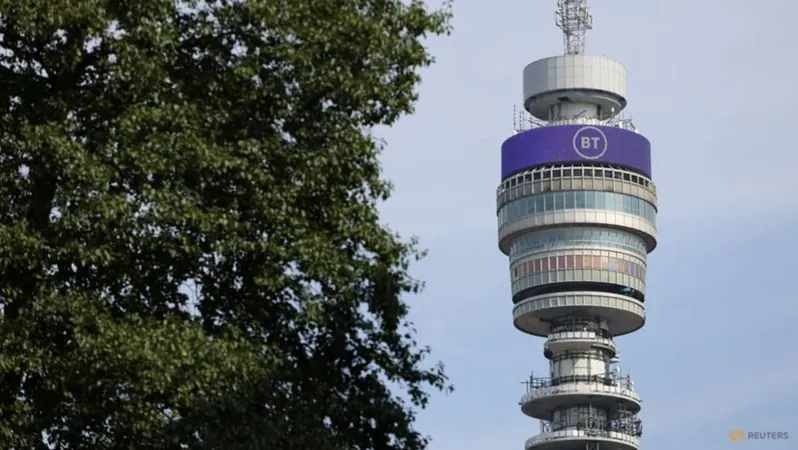
AI Revolution: BT's Job Cuts Could Get Even Deeper, Warns CEO
2025-06-15
Author: Nur
AI's Impact on BT's Workforce
In a striking revelation, BT Group’s CEO Allison Kirkby has flagged that the rise of artificial intelligence could lead to even greater job reductions at the British telecommunications giant. This unsettling forecast was reported by the Financial Times.
Massive Job Cuts Ahead
Kirkby disclosed that BT is poised to shed over 40,000 positions and aims to slash costs by a staggering £3 billion ($4 billion) by the end of the decade. However, she hinted that these plans "did not reflect the full potential of AI," indicating the possibility of further job losses as AI continues to evolve.
A Smaller BT on the Horizon?
"Depending on what we learn from AI . . . there may be an opportunity for BT to be even smaller by the end of the decade," Kirkby told the Financial Times, sparking concern about the future of employment at the company.
Future Plans and Strategic Moves
Previously, BT had announced an intention to cut around 55,000 jobs, including contractors, by 2030. The former CEO, Philip Jansen, emphasized a shift toward a leaner workforce to adapt to the evolving market demands.
Openreach: A Potential Spin-Off?
Taking the reins from Jansen a year ago, Kirkby has also hinted at the possibility of spinning off Openreach, BT's critical network infrastructure arm. She expressed that Openreach's value isn’t accurately reflected in BT’s stock price and signaled that the company would have to consider various options if this persists.
BT's Performance Amid Challenges
In response to queries, BT clarified that exploring an Openreach spin-off isn’t an immediate focus for them. Nonetheless, the company recently reported that strong demand for fiber broadband and over £900 million in cost savings bolstered its annual earnings, balancing the declines in revenue from its business and consumer segments.
Legacy Services in Decline
While Openreach demonstrated resilience, traditional voice services faced dwindling demand, compounded by falling handset sales, raising questions about BT's strategic direction in a rapidly evolving digital landscape.


 Brasil (PT)
Brasil (PT)
 Canada (EN)
Canada (EN)
 Chile (ES)
Chile (ES)
 Česko (CS)
Česko (CS)
 대한민국 (KO)
대한민국 (KO)
 España (ES)
España (ES)
 France (FR)
France (FR)
 Hong Kong (EN)
Hong Kong (EN)
 Italia (IT)
Italia (IT)
 日本 (JA)
日本 (JA)
 Magyarország (HU)
Magyarország (HU)
 Norge (NO)
Norge (NO)
 Polska (PL)
Polska (PL)
 Schweiz (DE)
Schweiz (DE)
 Singapore (EN)
Singapore (EN)
 Sverige (SV)
Sverige (SV)
 Suomi (FI)
Suomi (FI)
 Türkiye (TR)
Türkiye (TR)
 الإمارات العربية المتحدة (AR)
الإمارات العربية المتحدة (AR)